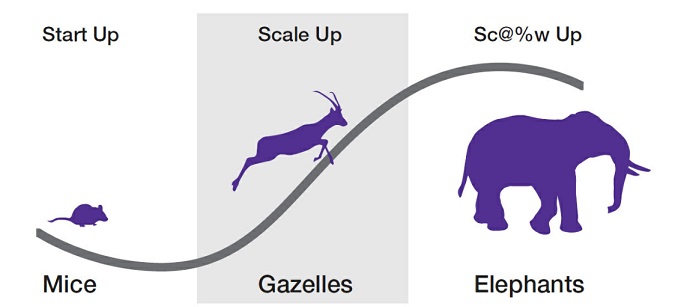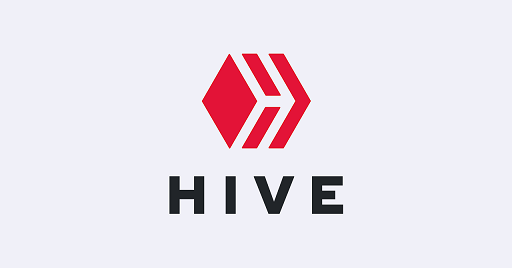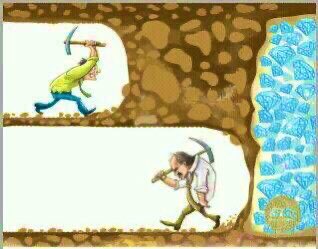How high can crypto scale?

The scaling issue is the core backbone issue for distributed ledger technology to solve. There are two opposing forces at play. On one side we have "decentralization", which ends up applying to dozens of power structures are are trying to rebuild on flat architecture.
Be it token distribution, node distribution, user distribution, power distribution, governance distribution, hash-rate distribution, voting distribution, etc. etc. etc., decentralization is about spreading all power out to many different sources so that no one source can control the network in any kind of significant way that would financially incentivize corruption.
It becomes obvious that there are many drawbacks to certain forms of decentralization. The most blatant offender is the number of nodes/servers storing information since the genesis block. The more nodes there are, the more inefficiency there is and the harder it becomes to scale up, because you have to scale up every single server independently or risk many of these servers dropping out of the race (increasing node centralization).
On top of that drawback, every day that ticks by adds more and more data to the ledger, making it automatically a little more unsustainable as time goes by. I've talked about the need for "checkpoints" so that nodes can boot up from a large file that's been approved by the network rather than having to replay the entire chain.
This is something that Hive and Koinos have going for them, but it also introduces a new attack vector that theoretically could lower security. This is why on many levels Bitcoin will be the king of security for quite some time. They are keeping it simple and small while everyone else rushes forward. What do they say about fools rushing in?

But I'm not here to write about Bitcoin, or even compare one crypto's scaling strategy with another. When it really comes down to it, crypto doesn't compete with itself, but rather the legacy systems that have been in place for generations. This is where real change can happen, not among of petty squabbles of hypocritical tribalist maximalists who only root for one team to "win" ironically within a cooperative environment.
This leads me to look at corporations. What are they doing? How do their scaling solutions measure up? How big can they get before they fail? Some of the information provided to us is quite enlightening.
Wikipedia list of largest employers

The biggest employer is clearly the military industrial complex. Shocker! When you add up USA, China, Russia, India, North Korea, France, and the UK, it all adds up to a whopping 12.5M people who's sole job it is to maintain imperialism and force other people what to do by creating laws, fighting wars, and enforcing taxes by threat of torture chamber and legalized slavery (13th Amendment in the USA).
This should be no surprise to anyone who regularly reads my ramblings. The vast majority of resources on this planet are allocated to maintaining the status quo and consolidating power to the biggest players. The American Dream is a pyramid scheme. Business as usual.
And to be fair this is the system we have because this is the system that works. Trust me, we tried a lot of governance models, and imperialism with a centralized top down approach for rulership is the thing that consistently scales up the highest more than anything else we've attempted. However, I think crypto has got their number, and it's only a matter of time before something truly legendary is built. Not "in theory", but an actual system that scales higher than what we have now.
So far, crickets.
These things take time.
Let's take a look at the competition.

An interesting thing here is the fact that Walmart towers over the rest in terms of total employees. There logistics must be pretty insane. They were also at 2.2M back in 2013, so they've been extremely consistent. If I had to guess this is pretty much the limit for how big a corporation can get: 2.2M people before everything starts breaking down a the seams and is no longer profitable.
Even more interesting is that McDonald's towers above Amazon at 1.9 million employees (vs 1.1M). Goes to show you that bigger is not always better. Amazon's employees can go down and the business will become even more profitable due to all the automation they are doing and ties to government and Big Tech.

Again, it seems like 2M people is the absolute limit for how big a corporation can get. Governments scale up to about the same, but governments also control the underlying populations, which is why there are so many scaling difficulties in government.
Many of us are no stranger to the DMV (Department of Motor Vehicles) and how slow and obnoxious government run operations are. They are nothing but red tape and slow lumbering solutions that reflect the shear magnitude of users they are trying to "serve".
Once an organization gets to this "elephant" screw-up size it can only go downhill from there. Crypto is a solution to this 2M-3M employee scaling cap.

Of course crypto is not directly comparable to corporations, which is exactly why all those comparisons to the Dot Com bubble were completely bogus in 2018. Funny how the same naysayers are coming out of the woodwork to spew that garbage once again. The Dot Com bubble only happened once guys, get over it, you were wrong, and you are wrong again. Accept it. Rip off the bandaid.
However, I see every user on Hive as an employee of sorts. Unlike traditional social media and every Web 2.0 business model, Hive and other crypto networks do not profit from massive swaths of private data (all the data is public anyway).
We are building totally separate communities, economies, and even entire currencies inside of these digital networks. In the long term, this is a hugely powerful mechanic that the legacy system could never hope the duplicate in their wildest dreams. Funny how they are trying to do just that with 'enterprise' blockchain CBDC, which is going to be one of the most fun train wrecks to watch in all of history.
In any case, like I said, I view every single person on Hive as an employee of Hive who has a financial incentive to bring value to the network. Why do they have a financial incentive to do so? Because they can generate an income, not only for themselves, but the value they build here and on other networks synergizes together due to the sovereign agency of the underlying currency.
The network will only print money when the network agrees to print money. This allows anyone within these emergent economies to build value and store that value permanently without bending the knee to a central bank and being sucked dry by the vampires.
All of these facts add up to one thing: on WEB 3.0, the users are not sheep to be data-farmed, but actual employees of the ecosystem. These employees are both producers and consumers, which is a prerequisite for a free-market economy that actually works.
Take it from my good friend Bo Burnham!
The global network of capital essentially functions to separate the worker from the means of production.
First of its kind.
That's some economic poetry right there.
What it means is that if the workers do not have any ownership in the products they build, they become cut out of the loop and hung out to dry. The big dogs at the top can turn around and sell their own product back to their own workers at an inflated price, and none of the workers can sell the product at a cheaper price to compete because they do not own the means of production in any way, shape, or form.
Crypto fixes this.
With crypto, the network can create any rules that it wants. So if the Hive network were to build some factory or energy farm or whatever in the real world, and allocated inflation to do it, we would all own a piece of the outgoing product by design. It's a superior system in very fledging infant stages. Hope for the best; prepare for the worst.
But what if Hive is the MySpace of crypto?
There were a lot of fears about this back in the day, and to be honest they are still lingering with all these shiny new projects that people are dumping billions of dollars into while Hive just kinda sits on the sidelines. However, how many users did MySpace have?
Yeah, during its prime MySpace had around 75M users, which is obviously nothing compared to what Facebook achieved, so it is assumed that MySpace "lost the war". The thing about crypto is that you can't lose the war because this isn't a competition.
Because crypto is so grossly inefficient by design at the benefit of security, trust, and censorship resistance, there is literally no way for some network to come in and dominate everything. The entire point of decentralization is that there will be many many options and opinions out there. Someone should let the delusional Bitcoin maximalists know.

Once again, hammering this point home and beating a dead horse, users on crypto networks are not livestock meant to be herded, advertised to, and profited on. They are employees to the network that actually bring value to the network just by being there. Some of them will bring very little value to the network, and some of them will bring more than enough value for everyone. In the end these things will balance out, but the final result is that massive synergistic effects will coalesce into extreme fonts of value creation that benefit everyone within the network (and possibly even outside the network with interoperability features imposed).
So what if Hive only gets 40 million users over the next 10 years and becomes the "MySpace" of crypto? LOL! 40 million users!? Can we even handle that many? I'm not sure. I guess we'll find out. It's almost guaranteed that Hive, and most other networks out there as well, will hit some kind of user cap that grinds everything to a halt. Luckily Hive has a very good mechanic in place to avoid this Sybil "attack".
Resource Credits.
It's safe to say that even with a couple million users Hive will make a moonshot, because again, the value from WEB 3.0 doesn't come from these Podunk sources of making pennies from megabytes worth of data. The amount of value that each user generates on Hive will be x100+ more than the value they generate on WEB 2.0. That is a fact.
Meaning that if Hive were to achieve such a legendary number of users like 40 million (easy), then we would in turn, with those users, generate at least enough value to complete with a WEB 2.0 platform that had 4B users. That's how serious these things are. That's how broken the old system is. There are digital mountains filled with silver, gold, and gemstones just waiting to be jackhammered into. The only determining factor is how much time it takes to get from here to there.

And lets be fair, the powers that be are not making this transition easy. Business as usual. Bitcoin and crypto at large have been under attack from every single vector constantly since inception. But then that's kind of the point, isn't it? This is how capitalism works, and it's gone as far as it's going to go, and now we need a new system. Wouldn't you know it, we got the new system, and those who got involved ten years ago are already billionaires. Go figure.
Crypto is that new system, but if we thought there wasn't going to be any friction implementing an entirely new financial structure from the ground up, well I guess we were kidding ourselves. The friction here is a volcano of epic magnitude. Lava everywhere; don't get burned.

Conclusion
Crypto as a whole can scale to massive levels, dwarfing every corporation, government, bank, and religion in existence. However, no one network can do it alone, and we are all participating in this decentralized flat architecture in however we see fit.
- On Web2, users are cattle who's purpose is to be farmed.
- On Web3, users are valued community members who benefit from the means of production.
- Web3 is a critical piece of the attention economy. We are shifting to a new model where we have to pay users money to provide value and give us their attention. The old model of simply providing free services is not enough. "Get paid to _____". People need jobs that aren't trash, plain and simple.
Unlike Web2, getting users isn't going to be that hard on Web3. It's actually servicing the users that we do get that's going to be the choke point. This is why everyone talks about the scaling issue. The problem isn't getting users, it's retaining them and setting them up to build the maximum amount of value for the network and for themselves so they have a reason to keep coming back. These are symbiotic relationships, where as the corporate model is purely parasitical.
With crypto, trickle down economics actually does work, because no singular network can absorb all the users like a centralized company could. All crypto networks have a niche roll to play, and the whole is greater than the sum of these parts. This is synergy at it's finest.
Posted Using LeoFinance Beta
Yes it's all a trade off right. So a more efficient system generally equals less nodes and less security. You can have a system like bitcoin with more security but less efficiency. So it's just so difficult to find the goldie locks zone. When i designed bitcoin myk i think we took the more efficient less secure route. According to Vitalik it would seem we can only choose one which is why he doesn't like hive.
So in my theory it was a pretty simple formula. Tokenize on several big chains link to the chains through some gateway and then just let the community choose which version of the token they'd want to use but they'd still all be the same supply etc. So now you get into the issue of centralization and counterparty risk. Is it worth the risk. .are you now even engaging in crypto in the form of how we know it or accept it.
So i can only say this, bitcoin the currency and bitcoin the network when you move the coin the coin has with it the utxo's so it is the code. Like when you move the coin it contains that data. Those transactions etc., So you can't really in a sense have the coin and not have the network.
My point is no matter how it goes he who has the coins has the network right. So in our example no matter how you flip it theoretically we should still end up with some of the best distribution in crypto because we're using a ubi platform and it means it has to be constant distribution no matter what.
In bitcoin and other cryptos i'd still conclude that the network is centralized whether it be by the wealth of the network or the coin to vote ratio.. in the governance etc.. doesn't really matter. I would still come to the conclusion that the security of that network is still going to be somewhat compromised if just by the danger of such levels of centralization in those aspects.
So i guess what i'm getting at is not so much the process of what happens in crypto but what you end up with. So if you end up with 87% of a network owned by 1%. Does it even really matter? That's never going to fulfill or solve many of the issues we're attempting to solve. So are you all more concerned about outcome or the process. I don't know but it would seem we always have to pick one in some regard.
Now with us we want to unify chains together and let the people choose the chains that serves their needs but then one token to rule them all lol. There are other means to address this whether it be some new algo some catchy smart contract or whatever they come up with to scale. parachains.. whatever .. They come up with some new idea as a way to scale every year. So then one network gets either more congested than before or they get less secure than before. This is the connundrum
So again i would ask a question more like in a network would you care more about can it scale and be centralized and not decentralized in the most important ways. Or would you ultimately care more about if you saw a well balanced network owernship wise but in order for that to occur there needed to be some centralization aspects.
However it ends up going it doesn't seem to be doing any good in the decentralization department. if i'm honest even the best models seem centralized to me. You just can't realistically quote stats like what we have in crypto and claim any decentralization. I don't think its proven yet to be a winnable argument that is not full of holes.
Posted Using LeoFinance Beta
https://twitter.com/offgrid/status/1416178431549653001
The rewards earned on this comment will go directly to the person sharing the post on Twitter as long as they are registered with @poshtoken. Sign up at https://hiveposh.com.
Biggest. Honeypots. Ever.
Pretty much every hacker (white hat and black hat alike) will go after these.
When the first CBDC gets hacked, TPTB will freak but sort of recover. They’ll figure out a “fix” and assure us that things are okay. The second CBDC hack will be epic.
I figured this post would be a great time to drop this link to a video...
Well maybe a company like Walmart or Amazon finds HBD useful to allow as a purchase option on their sites or heck maybe ole Zuck Zuck might finally by the majority of stake... A boy can dream right?
All I am saying is a symbiosis event can still happen where even the smallest of stake holders can move to an island based on margarita preferences...
I'm loving your stuff! Keep it coming!
Funny, cause we always tend to do that (squabble amongst ourselves and completely ignore the real danger)
I think it definitely is annoying but I have found out recently that if you do things online, you can save a lot of efforts. Compared to going in person, my digital renewal of my license was a lot less painful this time around.
Posted Using LeoFinance Beta